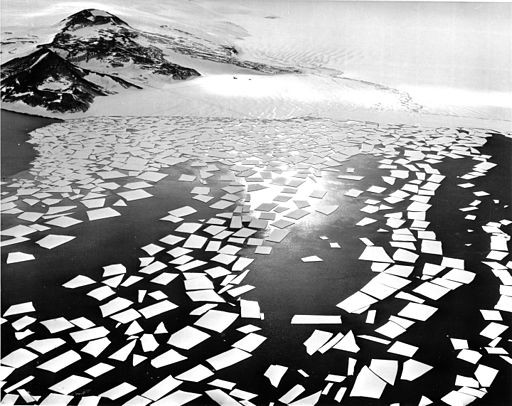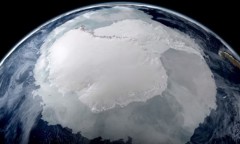By Jenia Cane, | February 18, 2017

This year's minimum sea ice level in the region is said to be the smallest so far. (Robert Woods, US Navy)
Scientists have revealed that the extent of the Antarctic sea ice has shrunk and is getting more erratic these days.
According to the British Antarctic Survey, this year's minimum sea ice level in the region is the smallest so far. It is worth noting that during the summer season in Antartica, the extent of sea ice is usually lower compared to other months. However, the report dished that it is unusually smaller this time.
Like Us on Facebook
On Monday, the Antarctic sea ice extent was recorded at 883,015 square miles. This is below the 884,173 square miles level, which was observed during the previous study made in 1997. These results were gathered by scientists with the use of satellites, and this has been going on since 1979.
In a statement, British Antarctic Survey climate scientist Japes Pope said sea ice is "highly variable on year-to-year time-scales and therefore the recent record maximum extent from a couple of years ago and this year's record minimum could both be the result of short- term changes rather than longer-term trends."
Pope further pointed out that since the 1970s, the size of the Antarctic sea ice has been increasing. Therefore, the recorded decrease this month is somehow a surprise.
Considering this new scenario, scientists have been eager to learn if this would just be a unique occurrence, or if it would go on in the coming months and years.
Meanwhile, another report disclosed that the latest recorded sea ice extent had been the lowest in the last 38 years. This is a condition that is not unique, though, as Antarctic since Arctic has been experiencing the same.
The Director of the World Climate Research Program David Carlson said the "extraordinary" temperature could be blamed for this, particularly in the case of Arctic. This possibly means that "the Northern Hemisphere circulation has changed such that it allows warm air to penetrate deep into" the region.
-
Use of Coronavirus Pandemic Drones Raises Privacy Concerns: Drones Spread Fear, Local Officials Say

-
Coronavirus Hampers The Delivery Of Lockheed Martin F-35 Stealth Fighters For 2020

-
Instagram Speeds Up Plans to Add Account Memorialization Feature Due to COVID-19 Deaths

-
NASA: Perseverance Plans to Bring 'Mars Rock' to Earth in 2031

-
600 Dead And 3,000 In The Hospital as Iranians Believed Drinking High-Concentrations of Alcohol Can Cure The Coronavirus

-
600 Dead And 3,000 In The Hospital as Iranians Believed Drinking High-Concentrations of Alcohol Can Cure The Coronavirus

-
COVID-19: Doctors, Nurses Use Virtual Reality to Learn New Skills in Treating Coronavirus Patients










